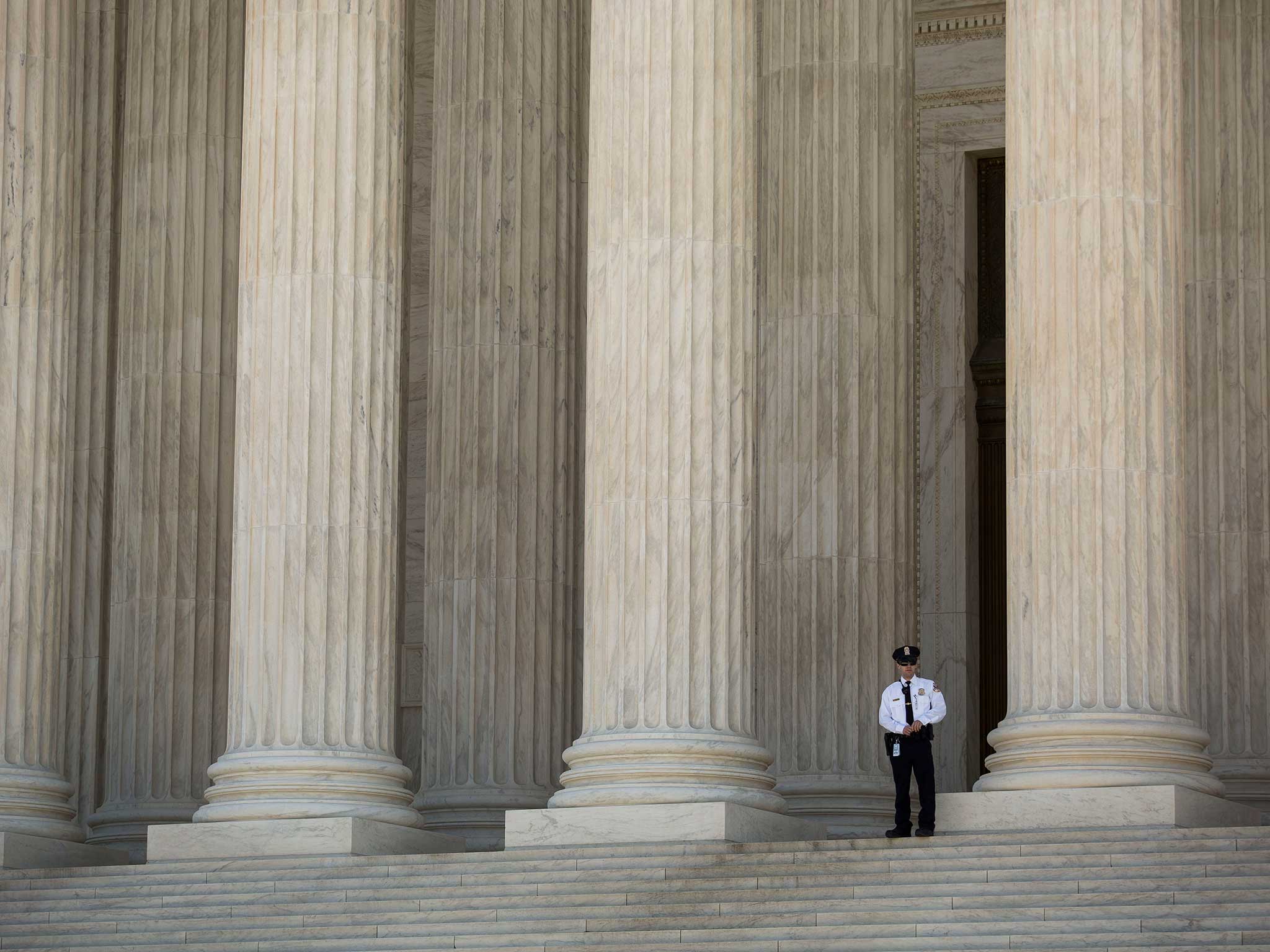Death row: US Supreme Court justice says drug for inmates' executions like being 'burned alive'
Debate surrounding Glossip v Gross and has divided Justices ideologically

Your support helps us to tell the story
From reproductive rights to climate change to Big Tech, The Independent is on the ground when the story is developing. Whether it's investigating the financials of Elon Musk's pro-Trump PAC or producing our latest documentary, 'The A Word', which shines a light on the American women fighting for reproductive rights, we know how important it is to parse out the facts from the messaging.
At such a critical moment in US history, we need reporters on the ground. Your donation allows us to keep sending journalists to speak to both sides of the story.
The Independent is trusted by Americans across the entire political spectrum. And unlike many other quality news outlets, we choose not to lock Americans out of our reporting and analysis with paywalls. We believe quality journalism should be available to everyone, paid for by those who can afford it.
Your support makes all the difference.A United States Supreme Court Justice has described the effect of a drug used to kill death row inmates as similar to being "burned alive".
The fraught exchange surrounding Glossip v Gross, the first of its kind in seven years, concerns the legal ramifications of a European-led boycott of lethal injection drugs.
The nine Supreme Justices – split down ideological divides – must decide whether the use of new drug midazolam falls within the limits of the US constitution’s ban on cruel and unusual punishment.
Midazolam, usually used to lower the anxiety of patients rather than to prevent pain, is predominantly used as a “premedication” although if administered continuously it can maintain sedation or anaesthesia in certain patients.
Execution procedures have been highlighted following death row inmate Clayton Lockett’s protracted death. Other states have elected to return to controversial methods – such as firing squads – as the pentobarbital boycott take effect.
Justice Elena Kagan said there was huge uncertainty over the effect midazolam had on the human body, adding that when prisoners were injected with the third lethal drug – potassium chloride – “People say that potassium chloride is like being burned alive – they talk about being burned at the stake, which everyone agrees is cruel and unusual.”
Her claims were backed up by Justice Sonia Sotomayor, who said that scientific experiments in Oklahoma on midazolam’s effect were “plainly wrong”.
They were supported by Justice Stephen Breyer who noted some cases where patients under Midazolam had “jolted back into consciousness” after pain was inflicted.
The justices were careful to point out that their discussion was not whether the death penalty should exist.
But right-leaning judges expressed their anger over the global drugs boycott and indicated that discussion surrounding the legality of other drugs was merely a smokescreen for the anti-execution lobby.
“Let’s be honest about what’s going on here,” said Justice Samuel Alito. “This court has ruled that executions are constitutional, but some people are trying to abolish the death penalty.”
Join our commenting forum
Join thought-provoking conversations, follow other Independent readers and see their replies
Comments